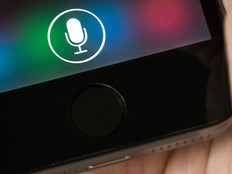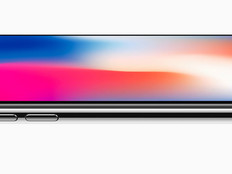Tablets Caught Google’s Eric Schmidt by Surprise, but He Believes They’re the Future of IT
When the iPad made its debut in 2010, there were plenty of naysayers who dismissed the device as nothing more than an “oversized iPhone.” But now, with Forrester predicting that 18 percent of all tablets will be used for business purposes by 2017, there’s no denying that the devices are poised for a takeover.
While Apple’s iPad certainly is credited with building both the consumer and the enterprise appetite for tablets, several new contenders have entered the market, including Amazon, Google, Samsung and Microsoft.
Speaking at the Gartner Symposium Conference in Orlando, Fla., earlier this month, Google Executive Chairman Eric Schmidt confessed that he never saw the tablet wave coming.
“I was actually surprised by this,” he said, according to a recap by Business Insider. “I didn't call this. Would the phone replace the PC? I figured employees would be using a PC and a phone. But it was the tablet revolution. It looks to us like the majority of enterprise computing is being done on mobile devices, in particular on tablets.”
Schmidt goes further to say that the mobile revolution is forcing the enterprise to completely rearchitect the way it develops and delivers software solutions.
“It looks to me like you're going to have to dismantle much of that existing infrastructure and replace it by a model that actually works in this new tablet, phone, mobility model,” he says.
While it’s true that there’s a divide between mobile and desktop applications now, this is exactly what Microsoft aims to mitigate with its Windows 8 operating system, which allows applications to work on both mobile and desktop devices. Apple seems to be inching toward a converged platform as well, as each version of its Mac OS X operating system incorporates features from its mobile OS, iOS.
So it’s not clear if the mobile/desktop divide will be a permanent condition or a temporary ailment for the enterprise. But while the forecast for the future of mobile software is cloudy, the interest in the form factor is crystal clear.
Tablets have continued to evolve on all fronts. The new iPad Air is the thinnest tablet yet, which speaks to some users’ desire for portable, lightweight devices. But on the other end of the spectrum, Fox News just rolled out giant, 55-inch touchscreens as part of its brand-new newsroom. So when it comes to tablets, it’s different strokes for different folks.
This diversity, flexibility and usability is exactly what draws users to tablet computing and helps ensure that the form factor is here for the long haul.








